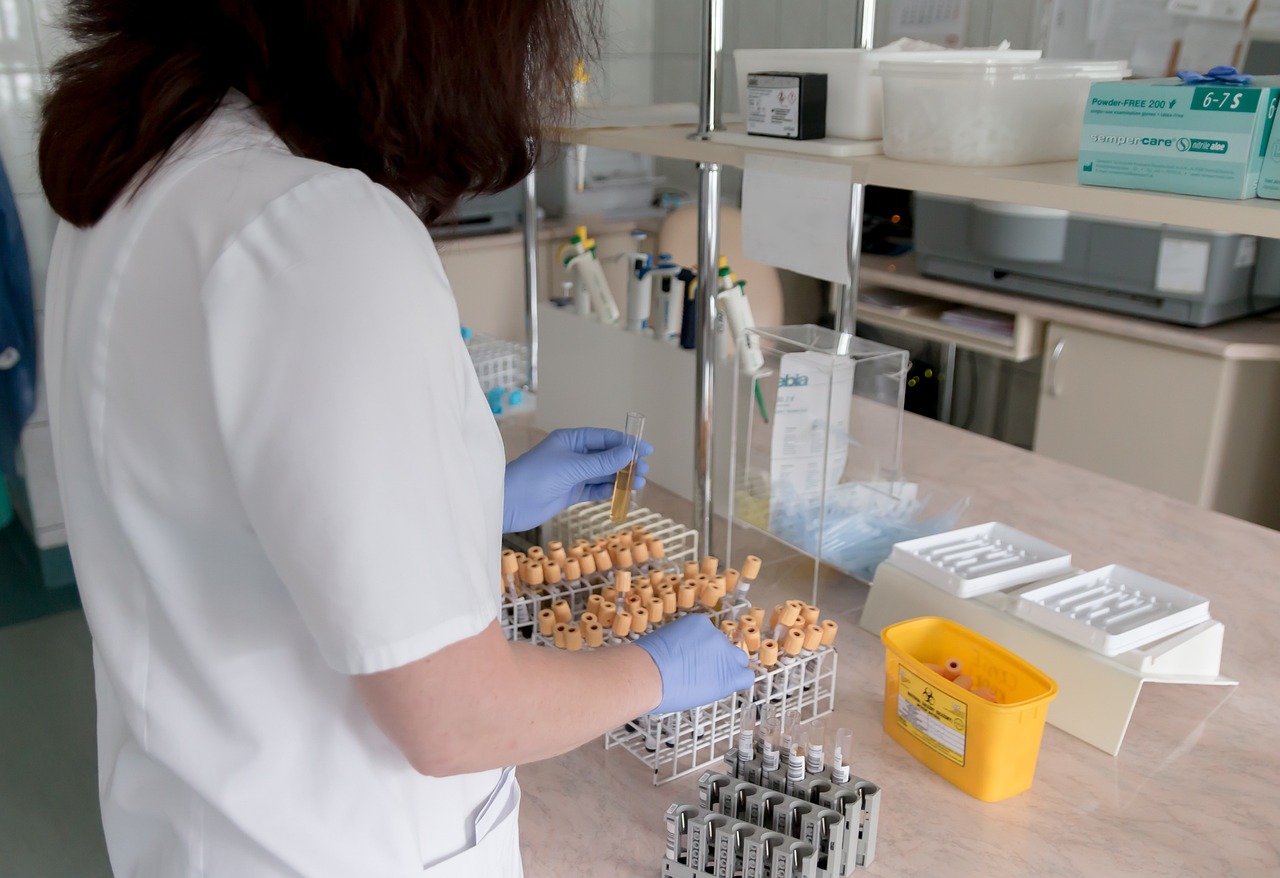When it comes to determining how long after intercourse to take a pregnancy test, timing is crucial. The ideal time frame for taking a pregnancy test is typically about one to two weeks after unprotected intercourse. This allows enough time for the pregnancy hormone hCG to build up in your system to levels detectable by a test. However, some tests claim to provide accurate results even earlier, so it’s essential to consider various factors that can affect the accuracy of the results.
There are different types of pregnancy tests available, including urine tests and blood tests. Urine tests are more commonly used as they are convenient and affordable. On the other hand, blood tests are more sensitive and can detect pregnancy earlier than urine tests. Understanding the differences between these tests can help you choose the most suitable option for your needs.
Early pregnancy testing is an option for those who are eager to find out if they are pregnant soon after conception. Some tests claim to provide accurate results as early as a few days before your missed period. These early detection tests can offer peace of mind or early confirmation of pregnancy, but it’s essential to follow the instructions carefully for reliable results.
Interpreting pregnancy test results can sometimes be confusing, especially with different outcome indicators such as lines or symbols. It’s crucial to read the instructions provided with the test carefully to understand what each result means. A positive result usually indicates pregnancy, while a negative result may require retesting at a later date for confirmation.
Various factors can affect the accuracy of a pregnancy test, including the timing of the test, the method of testing, and individual health conditions. Factors such as taking the test too early or not following the instructions properly can lead to false results. It’s essential to consider these factors to ensure you get reliable and accurate results when taking a pregnancy test.

Timing of Pregnancy Test
When considering the timing of a pregnancy test after intercourse, it is crucial to understand the ideal window for accurate results. Taking a pregnancy test too early may yield a false negative, leading to confusion and disappointment. On the other hand, waiting too long can also affect the reliability of the test. The timing of the test plays a significant role in obtaining trustworthy results that can provide clarity and peace of mind.
Factors such as the type of pregnancy test used and the sensitivity of the test can impact the timing of when to take the test. While some tests claim to provide early detection, it is essential to consider the reliability of these results and the potential for false readings. Understanding the nuances of different types of pregnancy tests can help in determining the most suitable timing for testing.
Additionally, the menstrual cycle of the individual can influence the timing of the pregnancy test. Knowing the approximate date of ovulation and the expected start of the next menstrual period can aid in determining the optimal time to take the test. This knowledge can enhance the accuracy of the results and reduce the chances of misinterpretation.
Ultimately, the timing of a pregnancy test is a critical factor in obtaining reliable results. By being aware of the ideal window for testing and considering various influencing factors, individuals can ensure that the test is conducted at the most opportune moment for accurate and conclusive outcomes.

Types of Pregnancy Tests
When it comes to pregnancy tests, there are various types available to women to determine if they are expecting. These tests differ in their method of detection and accuracy levels. Let’s delve into the different types of pregnancy tests:
- Urine Tests: One of the most common types of pregnancy tests is the urine test. This test is easily accessible and can be done at home using a pregnancy test kit. It detects the presence of human chorionic gonadotropin (hCG) hormone in the urine, which is produced during pregnancy.
- Blood Tests: Blood tests for pregnancy are conducted at a healthcare provider’s office. These tests can detect pregnancy earlier than urine tests as they measure the level of hCG in the blood. There are two types of blood tests: quantitative (measuring hCG levels) and qualitative (detecting the presence of hCG).
- Home Pregnancy Tests: These tests are convenient and easy to use, providing quick results in the comfort of your home. They are usually urine tests that come with instructions on how to use them correctly for accurate results.
- Clinical Pregnancy Tests: These tests are performed at a healthcare facility under the supervision of a medical professional. Blood tests are often conducted here for more accurate results, especially in cases where early detection is crucial.
Each type of pregnancy test has its advantages and limitations, so it’s essential to choose the one that best suits your needs and situation. Understanding the differences between these tests can help you make an informed decision when the time comes to check for a possible pregnancy.

Early Pregnancy Testing
When it comes to early pregnancy testing, timing is crucial. The excitement and anticipation after intercourse may lead you to want to take a pregnancy test immediately, but it’s important to understand that accurate results require a bit of patience. While some pregnancy tests claim to provide results even before a missed period, it’s essential to remember that testing too early can lead to false negatives.
Early pregnancy tests work by detecting the presence of the hormone hCG in your urine. This hormone is produced by the developing placenta shortly after the embryo attaches to the uterine lining. However, hCG levels may not be detectable in the early stages of pregnancy, leading to inaccurate results if the test is taken too soon.
Typically, it is recommended to wait at least one week after a missed period to take a pregnancy test for more reliable results. This waiting period allows hCG levels to rise to a detectable level in your urine. Testing too early can result in disappointment and unnecessary confusion.
If you are eager to test early, some pregnancy tests claim to provide accurate results a few days before your expected period. However, keep in mind that the accuracy of these tests can vary, and it’s always best to confirm the results with a follow-up test if you receive a negative result but suspect you may be pregnant.

Interpreting Pregnancy Test Results
When it comes to , it’s essential to understand the various indicators that can appear on the test. These indicators can vary depending on the type of test you use, such as traditional line tests or digital tests that display words like “pregnant” or “not pregnant.” Each of these indicators carries its own meaning and requires careful interpretation.
One common indicator on pregnancy tests is the appearance of lines. These lines can be single, double, faint, or bold, and their presence or absence can signal different results. For example, a single line typically indicates a negative result, while a double line often signifies a positive result. However, the intensity of the lines can also be a factor in interpretation, as faint lines may require further testing to confirm pregnancy.
Some pregnancy tests use symbols instead of lines to indicate results. These symbols can include plus signs, minus signs, or other graphical representations. Understanding the meaning behind these symbols is crucial in accurately interpreting the test results and making informed decisions about your pregnancy status.
It’s important to follow the instructions provided with the pregnancy test kit to correctly interpret the results. Reading the results within the specified time frame is crucial, as delayed readings can lead to inaccurate interpretations. If you have any doubts about the results or find them difficult to interpret, consulting a healthcare professional can provide clarity and guidance.

Factors Affecting Test Accuracy
When it comes to the accuracy of a pregnancy test, several factors come into play that can influence the results. Understanding these factors is crucial in interpreting the test correctly and ensuring reliable outcomes. Let’s delve into the key elements that can affect the accuracy of a pregnancy test:
- Timing: The timing of taking a pregnancy test is crucial for accurate results. Testing too early or too late after intercourse can impact the reliability of the test.
- Method of Testing: The method used for the pregnancy test, whether it’s a urine test or a blood test, can affect the accuracy of the results. Blood tests are generally more sensitive and can detect pregnancy earlier than urine tests.
- Individual Health Conditions: Certain health conditions or medications can interfere with the accuracy of a pregnancy test. It’s essential to consider any underlying health issues that may affect the results.
- Quality of the Test: The quality of the pregnancy test kit used can also impact the accuracy of the results. Using a reputable and reliable test kit can ensure more precise outcomes.
- Follow Instructions: Following the instructions provided with the pregnancy test kit is crucial for accurate results. Improper use of the test can lead to false results.
By being aware of these factors and taking necessary precautions, you can increase the accuracy of your pregnancy test results and make informed decisions regarding your reproductive health. Remember, when it comes to something as important as a pregnancy test, accuracy is key.
Frequently Asked Questions
- 1. When is the best time to take a pregnancy test after intercourse?
The ideal time to take a pregnancy test is about a week after your missed period. Testing too early may result in a false negative, so it’s important to wait for accurate results.
- 2. How do different types of pregnancy tests vary in accuracy?
Urine tests are convenient and can be done at home, but blood tests are more sensitive and can detect pregnancy earlier. Both types can provide accurate results when used correctly.
- 3. Can health conditions affect the accuracy of a pregnancy test?
Yes, certain health conditions like polycystic ovary syndrome (PCOS) or recent hormonal treatments can interfere with test results. It’s always recommended to consult a healthcare provider for accurate testing.
- 4. What should I do if I receive a faint line on a pregnancy test?
A faint line on a pregnancy test could indicate a positive result, even if it’s light. It’s advisable to retest in a few days or consult a healthcare professional for confirmation.
- 5. Are there any medications that can affect the outcome of a pregnancy test?
Yes, certain medications like fertility drugs or tranquilizers can impact the results of a pregnancy test. It’s essential to inform your healthcare provider about any medications you are taking before testing.